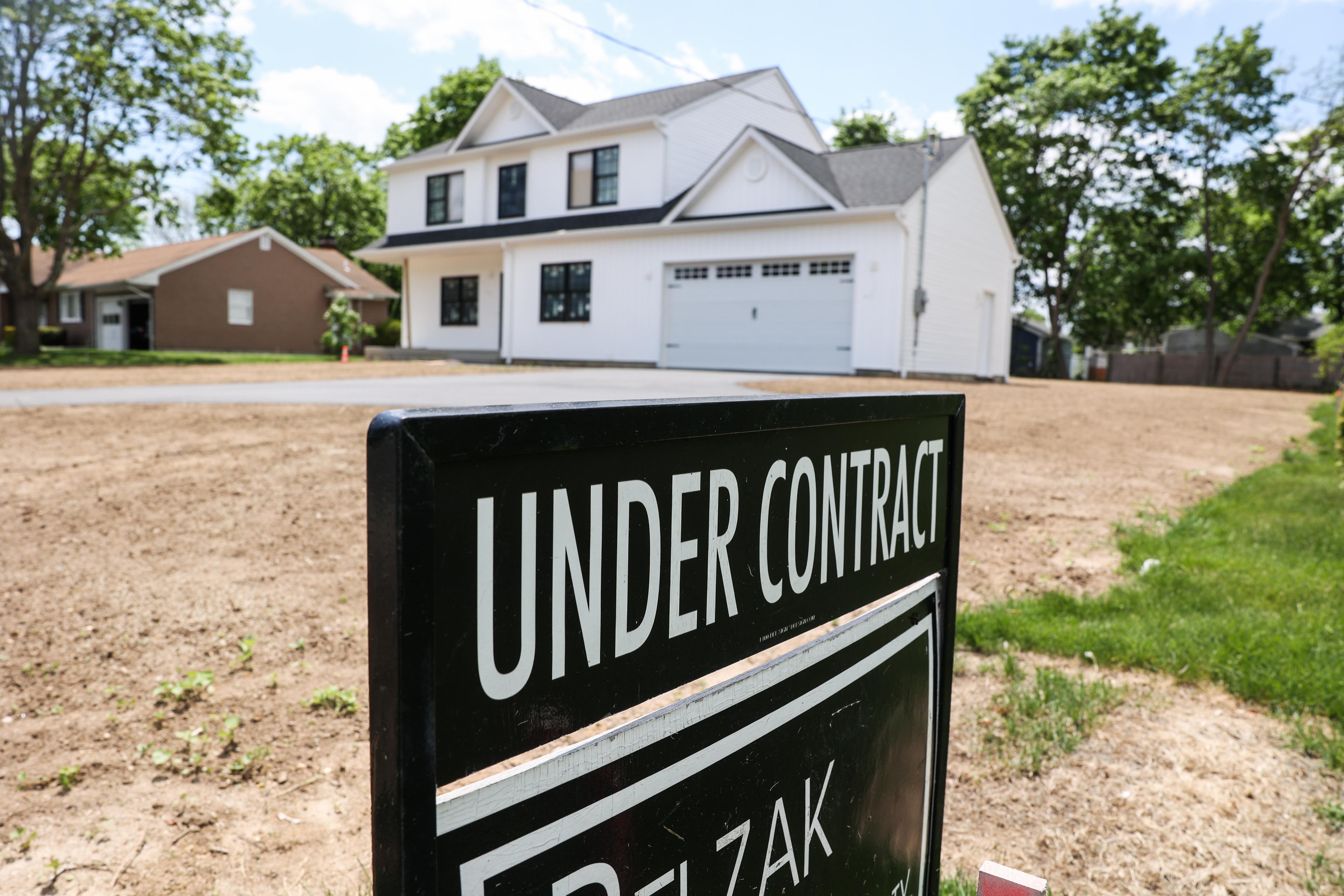What’s Going on With the U.S. Housing Market?
The Atlantic’s Jerusalem Demsas comes on the show to share her theories with Derek, and Derek explains why he thinks every important question about the U.S. housing market has the same fundamental answer: inventory, inventory, inventory
It’s our first Curiosity Corner podcast! We asked you to tell us what questions you wanted us to answer, and a lot of you had the same thought on your mind: housing. In this podcast, we answer: What’s going on with the U.S. housing market? Is this a bubble? Is it bursting? Why are homes in America so expensive? Why are we so bad at building houses? Why is there so much homelessness in America’s richest cities? The Atlantic’s Jerusalem Demsas comes on the show to share her theories with Derek, and Derek explains why he thinks every important question about the U.S. housing market has the same fundamental answer: inventory, inventory, inventory.
Keep sending your questions at PlainEnglish@Spotify.com.
In the excerpt below, Derek and Jerusalem discuss what a “bubble” really is, and whether the housing market qualifies.
Derek Thompson: So in our Curiosity Corner mailbag, our first ever Curiosity Corner mailbag, we got all these questions about housing and I was like, “OK, who do I know who is unhealthily obsessed with housing policy, unhealthily obsessed with real estate economics? Oh yeah, duh, it’s Jerusalem [Demsas].” So, Jerusalem, that is why you are here.
I wanna start with all the questions that we got about the latest breaking news, which is the very high likelihood that we are at or near the peak of the housing market right now, and the fears that we might be witnessing the popping of a massive housing bubble. So reading from the mailbag here—first names only—Al asks, “It seems like 2007 all over again. Am I paranoid or is the housing market not overinflated and the lending under-regulated again? I would love you and your experts’ takes and predictions.” John asks, “What would a housing bubble look like in 2022, 2023? 2008 was caused by flimsy buyers who should not have been approved for a mortgage lending and led to a wave of foreclosures. But this time around that doesn’t seem to be the issue.”
So, Jerusalem, I wanna start by defining our terms. Cable news and other podcasts are gonna throw around, you know, this word “bubble” as if it has some objective mathematical definition, but you have written directly about this. You have spoken directly to Nobel Prize–winning economists about the word “bubble.” What does “bubble” actually mean?
Jerusalem Demsas: Yeah, so this is kind of the problem is that there’s not actually a really great, specific, agreed-upon term for what an asset bubble is. I think the most interesting thing someone said to me when I was trying to track down how to define this was Nobel Prize–winning economist Richard Thaler. He thinks about it as kind of an epidemiological phenomenon. So kind of like it’s the epidemic of an idea or a feeling of what one should do with one’s life or leisure or what’s cool. So it’s not just, for instance, that prices rise really quickly; prices have risen for a lot of things, but people don’t really talk about there being a bubble in cars or anything like that. There’s not that kind of discourse around it in the same way there is around housing. So it’s not just that there’s a run-up in prices, but also this idea that everyone’s kind of getting in on it because that’s what’s cool or that’s the thing to do, or that’s what smart financial people do. And so that kind of accompanying frenzy is I think what people really get at when they mean there’s a bubble here. It’s not about the fundamentals. There’s something else going on.
Thompson: It’s not about the fundamentals of supply and demand. It’s about a social epidemic of perceived coolness. And then that social epidemic pops—like, for example, people are talking about a bubble in NFTs in the crypto market or a bubble in cryptocurrencies. And the thinking there is that the cryptocurrencies themselves, or those NFTs, aren’t necessarily doing anything fundamental. People were paying $1 million for them because they thought they were really cool. And then all of a sudden they kind of changed their mind. They were like, “Oh, they’re not cool anymore.” And so the value fell from $1 million to whatever, $1, zero.
So a bubble, I think just in really simple terms, is something that pops. Like defined narrowly, a bubble is something that inflates and inflates and then it pops. And so when people think about it in terms of the housing market, what they’re really saying is, is the housing market going to pop? Are prices going to fall? Not just 1 percent, 2 percent, 3 percent—are they gonna fall 20 [percent]? Are they gonna fall 30 percent? Are real estate values going to be decimated in my local market? So let’s make the case for and against a housing bubble happening right now. Jerusalem, make your best case that we are in or about to be in a housing bubble right now.
Demsas: Yeah. So the best case is just looking at how crazy these prices have gotten. Harvard economist Robin Greenwood and fellow researchers looked at 40 times that stock prices have increased over 100 percent. And they find that when that happens, when a quick price boom occurs, that there is an increased probability of a crash. So we have some of the fundamentals available for a crash to occur in this market, which is that there’s been a massive run-up in home prices. They are higher than they’ve ever been before. Median home prices above $400,000 was unthinkable very recently, and so that’s one of the big things.
And the second thing is this idea of the epidemiological phenomenon is obviously there, right? We hear these absurd stories of people offering to name their children after the seller of a home.
Thompson: My favorite story, from Redfin last year: that a buyer offered to name their firstborn child after the seller, and yet was rejected.
Demsas: I think it’s kind of creepy, so I would’ve rejected that honestly.
Thompson: I agree. It’s good for humanity that that offer was rejected.
Demsas: Exactly. But that’s not the only thing, right? Like there is this phenomenon of these buyer love letters, which have become super common—for people to write these letters explaining like, “You should pick me because I have two kids and we’ll go to the Catholic church nearby” or something like that. And obviously there are a lot of fair-housing implications there we won’t get into, but all these types of actions and behaviors are ones that indicate that there’s something—this frenzy is not purely just a logical decision being made about “I wanna buy a house for X, Y, and Z reasons.”
This excerpt has been lightly edited for clarity.
Host: Derek Thompson
Guest: Jerusalem Demsas
Producer: Devon Manze
Subscribe: Spotify

